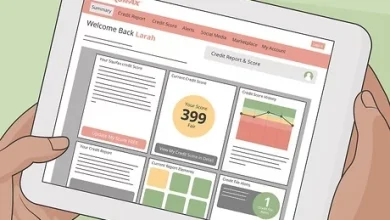
Top 5 Tips You Need to Know for Cybersecurity
With rising tensions in the Ukraine war, cybersecurity attacks are unfortunately becoming more and more common. However, there are many things you can do to help protect your online information, even though no single method is completely foolproof. Cloud security services are a great precaution, you can help reduce your risk of being a victim of an attack.
Back up Your Data Frequently
One of the most critical things you can do is to back up your data by copying it and storing it in another location. If you’re targeted by a cyber attack, you may not be able to use or access any of your devices. However, if you’ve backed up your data, then none of it will be lost even if something happens to all of your devices. You can back up your data monthly, weekly, or even daily and store it on an external device.
Update Phones and Apps Often
When you’re alerted to an update for your device or one of your apps, don’t ignore it — install it as soon as possible. Updates aren’t just about adding new features. They’re also about fixing vulnerabilities in a device or an app that attackers could find and use to gain access to your system. If your device can’t receive updates anymore, we recommend planning to upgrade to a newer model.
Use Unique Passwords
With the growing number of online accounts, it’s become tough to keep track of all the passwords. So, we often use the same password for multiple accounts or rotate between a couple of different ones. Unfortunately, if someone gets access to one account password, they can easily gain access to other associated accounts.
Two-factor Authentication
Another helpful way to prevent hacks on your online accounts is two-factor authentication (2FA). This allows you to select a preference, like receiving a code on your phone, that you use each time you log in as confirmation of identity. Even if somebody obtains access to the account password, they won’t be able to utilize it without also having the device with the code.
Avoid Transactions on Wi-Fi
When you use a public Wi-Fi network at a café, airport, or store to do things like shop online and transfer money, your information is unencrypted — which means it’s vulnerable. Therefore, if somebody manages to hack into the network, they can steal your data without even needing to have any knowledge of who you are. The easiest way to protect your information in these situations is to just not use public Wi-Fi for any financial transactions. The use of a VPN is also important in taking extra steps for protection.
Use Strong Passwords
Passwords are the first line of defense against many attacks. Make sure you’re using strong, unique passwords for all your accounts by combining numbers and letters in random patterns. For example, try a combination of 12346589 and Buckethead! as your password. Additionally, remember to never share your password. The most important thing you can do to help protect yourself online is to be proactive. By taking these precautions, you’re doing your part to keep your information safe and secure in the digital age.
Don’t Open Suspicious Emails or Links
Lastly, always be careful about what you open and click on when you’re online. If the email appears to come from a trusted source but still seems suspicious — such as being unexpected or containing a link but no message — delete it immediately. Similarly, if you receive an email that includes a strange link, don’t click on it or download any attachments from the sender. Instead, contact them to verify whether they sent you the email or not.
By taking these precautions for cybersecurity, you can help to protect your important data and information, making sure no one collects and analyzes your data. Not only will it help keep your sensitive information safe, but it will also help prevent you from becoming a victim of identity theft or fraud.



